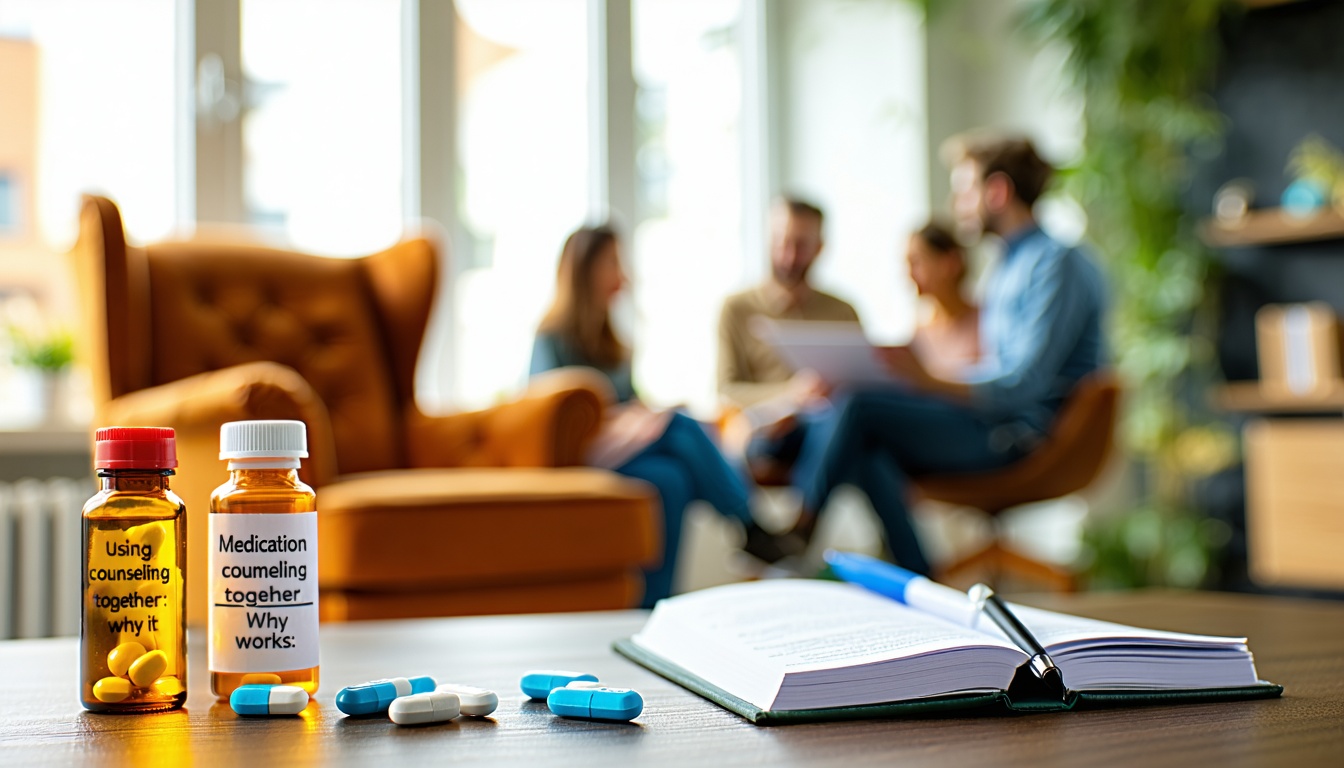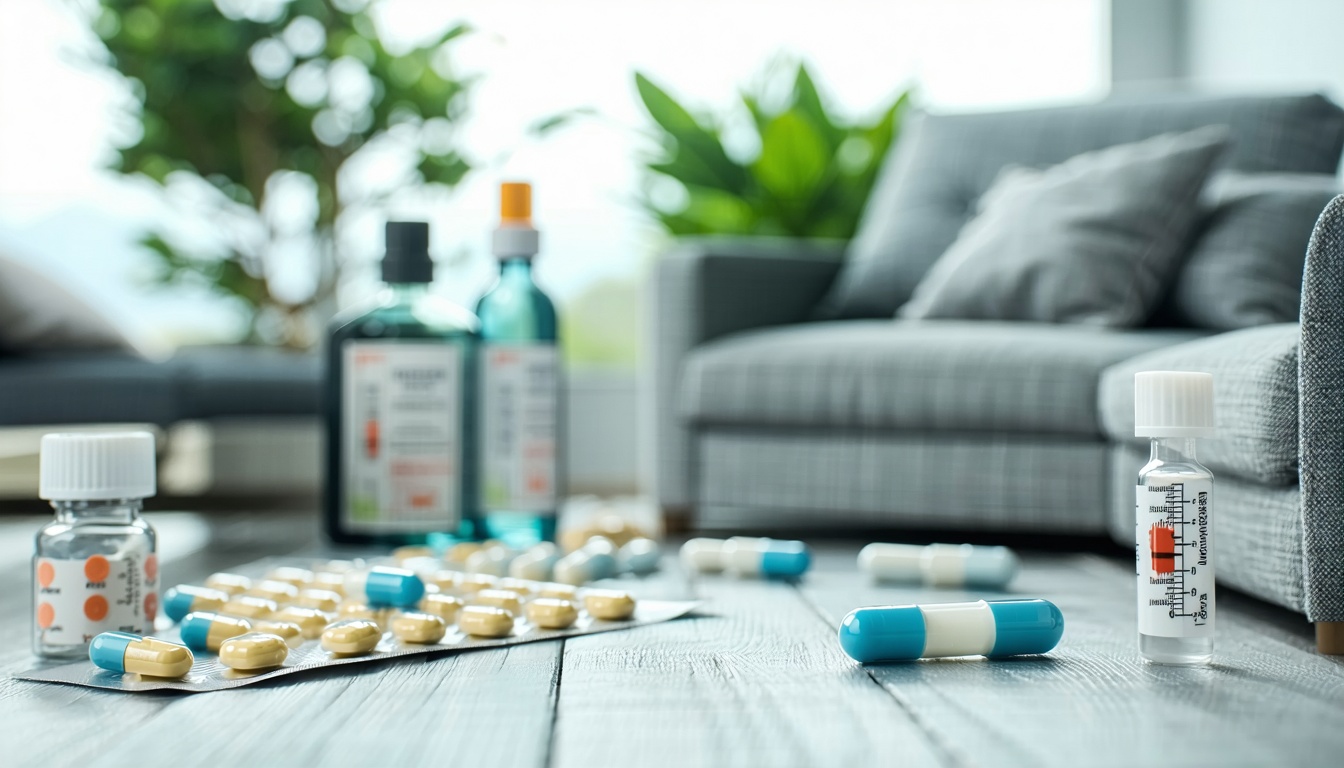Addiction Treatment Centers of MD Overview
At Addiction Treatment Centers of MD, we’re all about helping professionals kick addiction to the curb. Our programs are designed to meet the unique needs of those battling drug and alcohol addiction.
What We Offer
We’ve got a bunch of services to support you every step of the way:
- DUI & DWI Education Classes: Learn about the real consequences of impaired driving and how to make better choices.
- Addiction Counseling: Our licensed counselors provide a safe space to dig into the root causes of your substance use.
- Individual Therapy: One-on-one sessions to tackle your personal challenges and find effective coping strategies.
- Intensive Outpatient Group Therapy: Join group sessions for peer support and a sense of community.
- Mara Groups: Get mutual support and encouragement from others in recovery.
- Medication Assisted Treatment (MAT): We use meds like methadone and suboxone to ease withdrawal and support long-term recovery.
- Methadone Treatment: Part of our MAT program, methadone helps manage opioid withdrawal and cravings (methadone treatment centers).
- Opioid Addiction Treatment: A comprehensive approach to tackle all aspects of opioid addiction, from withdrawal to relapse prevention.
- Suboxone Medication Treatment: Suboxone is a safe and effective option for managing opioid dependence.
Specialized Treatment Programs
Our programs are specially designed for professionals seeking recovery:
- Employee Assistance Programs (EAPs): We work with employers to provide confidential support for employees struggling with addiction (Roots Recovery).
- Inpatient and Outpatient Settings: Whether you need intensive inpatient care or flexible outpatient treatment, we’ve got you covered.
- Counseling Services: Our licensed counselors offer both individual and group sessions to address substance use and underlying issues.
- Support Groups: Join support groups to find a sense of community and belonging.
We take a holistic approach to ensure you get personalized care and the tools you need for lasting recovery. For more info, check out our addiction treatment in Maryland page.
Understanding Addiction
When diving into addiction treatment for professionals, it’s key to grasp the different types of addiction and how they show up. This helps in crafting personalized treatment plans that fit each person’s needs.
Types of Addiction
Addiction falls into two main buckets: physical and behavioral. Each needs its own game plan for effective treatment.
Physical Addictions: These involve a chemical hook on substances, split into three groups: alcohol, street drugs, and prescription meds. Physical addiction often brings nasty withdrawal symptoms and needs medical help. For more on our methadone treatment centers, check out our detailed guide.
Behavioral Addictions: This type is all about compulsive behaviors that give a quick hit of pleasure. No substances here, but it can be just as tough. People get hooked on the good feelings from certain actions, losing control.
Physical vs. Behavioral Addictions
Knowing the differences between physical and behavioral addictions is a must for effective treatment.
Physical Addictions:
| Category | Examples |
|---|---|
| Alcohol | Beer, Wine, Spirits |
| Illicit Drugs | Cocaine, Heroin, Meth |
| Prescription Drugs | Opioids, Benzos, Stimulants |
Physical addictions mess with your brain, making it hard to quit without help. The Addiction Treatment Centers of MD have special programs to handle these dependencies. Check out our evidence-based addiction treatment options for more info.
Behavioral Addictions:
| Behavior | Examples |
|---|---|
| Gambling | Casino Gambling, Online Betting |
| Internet Use | Social Media, Gaming |
| Shopping | Compulsive Buying |
Behavioral addictions are driven by the brain’s reward system, leading to compulsive behaviors that can mess up daily life. Managing these often involves cognitive-behavioral therapies. Learn more about our cognitive-behavioral therapy in Maryland.
Both physical and behavioral addictions need solid treatment plans that tackle the root causes and offer ongoing support. At Addiction Treatment Centers of MD, we provide a range of services including individual therapy for addiction, intensive outpatient group therapy, and support groups for addiction to help folks on their road to recovery.
Addiction Stats You Need to Know
To grasp why addiction treatment is so vital, let’s dive into some eye-opening stats. These numbers show just how widespread substance abuse is in the US and why places like Addiction Treatment Centers of MD are so important.
SAMHSA National Helpline: The Lifeline
The Substance Abuse and Mental Health Services Administration (SAMHSA) National Helpline is a lifeline for those seeking help. In 2020, they got 833,598 calls, a big jump from 2019’s 656,953 calls. This rise shows more people are reaching out, but it also means there’s a huge need for addiction treatment.
| Year | Number of Calls |
|---|---|
| 2019 | 656,953 |
| 2020 | 833,598 |
Substance Abuse in the US: The Big Picture
Substance abuse is a huge issue in the US. A survey by SAMHSA found that 90% of people who need drug rehab don’t get it. This gap is what places like Addiction Treatment Centers of MD are trying to fill.
The CDC says marijuana is the most used illegal drug in the US. Over 43 million people used it last year, with 18% of full-time workers and 21% of part-time workers among them (Addiction Center). This shows how common substance use is, no matter your job status.
| Substance | Number of Users (Past Year) | Full-time Workers | Part-time Workers |
|---|---|---|---|
| Marijuana | 43 million | 18% | 21% |
For those battling substance use, professional help is a must. Alcohol abuse alone costs the US economy nearly $250 billion a year, with 62% of that from lost productivity (Addiction Center). Plus, 75% of employers say opioid misuse hurts their workplace, affecting everything from worker’s comp to overall productivity (Addiction Center).
These stats make it clear: we need solid treatment programs like those at Addiction Treatment Centers of MD. Whether it’s individual therapy for addiction, methadone treatment centers, or cognitive-behavioral therapy, our goal is to help professionals beat addiction and get their lives back. Want to know more? Check out our addiction treatment in Maryland services.
Why Getting Help Matters
Realizing you need help to beat addiction is a big deal. At Addiction Treatment Centers of MD, we’re here to guide you to a healthier, happier life.
Why Professional Treatment Rocks
Getting professional help can make a huge difference in kicking addiction. Our programs, like DUI & DWI Education Classes, Addiction Counseling, and Intensive Outpatient Group Therapy, are designed to give you the best shot at recovery.
Top Benefits:
- Custom Plans: We create plans just for you, helping you get through withdrawal and learn to live addiction-free (New Choices Treatment Centers).
- Long-Term Wins: If you stay clean for 2 years, there’s a good chance you’ll stay clean for 10. The longer you stick with treatment and join aftercare or self-help groups, the better your chances (NCBI Bookshelf).
- Whole-Person Care: We tackle everything from mental health to job issues, prepping you for any bumps in the road while aiming for lasting sobriety.
The Power of Support
Support is key in recovery. At Addiction Treatment Centers of MD, we make sure you have a strong support network.
Your Support Crew:
- Family and Friends: They give you the emotional boost you need to get through tough times.
- Healthcare Pros: Our team helps manage withdrawal and keeps you on track.
- Workplace Help: Employee Assistance Programs (EAPs) offer confidential help, including counseling and referrals (Roots Recovery).
Support Types:
| Support System | What It Does |
|---|---|
| Family Support | Emotional and practical help from loved ones. |
| Professional Counseling | One-on-one and group therapy sessions. |
| Peer Support Groups | Meet others who are in the same boat. |
| EAPs | Workplace programs with counseling and support. |
Using these support systems can really boost your recovery and help you stay sober. Check out our family therapy for addiction and evidence-based addiction treatment programs for more info.
Want to know more about how we can help? Visit our pages on methadone treatment centers and cognitive-behavioral therapy in Maryland.
The Real Struggles in Beating Addiction
The Relapse Rollercoaster
Falling back into old habits is a tough hurdle for anyone trying to kick drugs or alcohol. According to American Addiction Centers, about 40-60% of folks in recovery end up relapsing. This isn’t far off from the relapse rates for chronic illnesses like high blood pressure and diabetes. It just goes to show how crucial ongoing support and solid treatment plans are.
| Condition | Relapse Rate (%) |
|---|---|
| Substance Use Disorders | 40-60 |
| Hypertension | 50-70 |
| Diabetes | 30-50 |
Knowing these numbers helps us get a grip on the challenge. At Addiction Treatment Centers of MD, we use relapse prevention strategies that fit each person like a glove. Our game plan includes therapy, meds, and support groups, all working together to cut down the chances of slipping up.
Sticking with the Program
Another biggie in addiction recovery is actually finishing the treatment program. Less than 42% of people who start treatment for drugs and booze see it through to the end. This dropout rate shows how important it is to make treatment engaging and supportive so folks stick around.
| Statistic | Percentage (%) |
|---|---|
| Treatment Program Completion | < 42 |
At Addiction Treatment Centers of MD, we’ve got a bunch of programs like one-on-one therapy, methadone treatment, and cognitive-behavioral therapy to meet different needs. Our programs are designed to keep people motivated and on track. Plus, we stress the importance of aftercare and joining support groups to boost long-term success.
By tackling these issues head-on, Addiction Treatment Centers of MD aims to help folks find their way to recovery, making sure they get top-notch care and support. For more info on what we offer, check out our page on addiction treatment in Maryland.
The Impact of Substance Abuse at Work
Substance Use Disorders Among Workers
Substance use disorders (SUD) are a big deal among working adults. According to Addiction Center, about 13.5 million American workers have SUD, making up roughly 8.7% of the workforce. These folks miss around 22 days of work each year, which is double the days missed by their colleagues without SUDs. This absenteeism shows how crucial it is to have effective addiction treatment for professionals.
| Group | Number of People | Average Days Missed Per Year |
|---|---|---|
| Workers with SUD | 13.5 million | 22 |
| Workers without SUD | N/A | 11 |
Economic Costs and Productivity Loss
Substance abuse takes a heavy toll on the economy and workplace productivity. Alcohol abuse alone costs the US economy nearly $250 billion a year, with 62% of this cost tied to lost productivity. The National Safety Council also reports that 75% of employers say opioid misuse affects their workplace. A look at worker’s compensation claims showed that 32% of claimants with prescriptions had at least one opioid prescription.
| Substance Abuse Type | Annual Economic Cost | Percentage Related to Productivity Loss |
|---|---|---|
| Alcohol Abuse | $250 billion | 62% |
| Opioid Misuse | N/A | N/A |
Marijuana is the most commonly used illegal drug in the US, with over 43 million Americans using it in the past year. Among these users, 18% had full-time jobs, while 21% had part-time jobs.
| Substance | Number of Users | Full-Time Employed Users (%) | Part-Time Employed Users (%) |
|---|---|---|---|
| Marijuana | 43 million | 18% | 21% |
Research shows a link between job stress and substance misuse. High-stress jobs like firefighting, truck driving, construction, and journalism have higher rates of substance misuse (Addiction Center). This highlights the need for comprehensive addiction treatment programs for professionals that tackle both the addiction and its root causes.
If you’re curious about how Addiction Treatment Centers of MD can help professionals recover from drug and alcohol addiction, check out our services like individual therapy for addiction and support groups for addiction.
Treatment Approaches and Success Rates
Methadone Maintenance Programs
Methadone maintenance programs are a big part of our treatment options, especially for folks hooked on narcotic painkillers like heroin. This method has been around since the mid-1960s and has racked up about 1.5 million person-years of use in the U.S..
Methadone maintenance helps clients feel better, cuts down on illegal drug use, and lowers crime rates. Tons of studies show it’s great for stabilizing people and helping them get their lives back on track.
| Treatment Outcome | Effectiveness (%) |
|---|---|
| Reduced Illicit Drug Use | 60-70 |
| Decreased Criminal Activity | 50-60 |
| Improved Social Functioning | 40-50 |
Want to know more about our methadone programs? Check out our methadone treatment centers.
Therapeutic Communities (TCs)
Therapeutic communities (TCs) are another key part of our addiction treatment. TCs are live-in treatment setups for people seriously addicted to any illegal drug. They’re especially good for those whose family and work lives are messed up because of their drug habits.
In TCs, there are clear behavior rules, consequences for breaking them, and positive peer pressure to change behavior and build social responsibility. The goal is to change the negative habits, thoughts, and feelings that lead to drug use and help people live a responsible, drug-free life (NCBI Bookshelf).
Key parts of TCs include:
- Clear behavior rules
- Consequences for breaking rules
- Positive peer pressure
| Treatment Outcome | Effectiveness (%) |
|---|---|
| Improved Social Responsibility | 60-70 |
| Decreased Drug-Seeking Behaviors | 50-60 |
| Enhanced Social Adjustment | 40-50 |
Curious about how TCs work and their benefits? Dive into our article on evidence-based addiction treatment.
By offering methadone maintenance programs and therapeutic communities, we’re dedicated to providing solid and effective treatment options for addiction recovery. These methods are part of our wider range of services, including individual therapy for addiction, family therapy for addiction, and support groups for addiction, all designed to support you at every step of your recovery.
Group Therapy in Addiction Treatment
At Addiction Treatment Centers of MD, group therapy is a big part of getting better. We offer different types of group therapy to fit what each person needs. Here, we’ll talk about two main types: psychoeducational groups and skills development groups.
Psychoeducational Groups
Psychoeducational groups aim to teach clients about substance abuse and its effects. These groups help people understand how addiction affects their body and mind. By learning more, clients can start to see the need for recovery and fight against denial about their substance use.
In these groups, you’ll learn about:
- What addiction really is
- How substance use messes with your health
- Ways to get and stay sober
These sessions lay the groundwork for understanding why treatment is important and how to use the resources at Addiction Treatment Centers of MD. Want to know more? Check out our addiction treatment in Maryland.
Skills Development Groups
Skills development groups are all about learning the skills you need to stay sober. These groups use cognitive-behavioral techniques to help you handle stress, solve problems, and relax without turning to substances.
In these groups, you’ll cover:
- How to manage stress
- How to communicate better
- How to solve problems
- How to deal with cravings and triggers
By joining these groups, you’ll pick up practical tools to handle the ups and downs of recovery. Curious about how we use cognitive-behavioral therapy? Visit cognitive-behavioral therapy Maryland.
| Group Type | Focus | Key Benefits |
|---|---|---|
| Psychoeducational Groups | Learning about substance abuse and its effects | Better awareness, motivation for recovery, fighting denial |
| Skills Development Groups | Building coping skills for sobriety | Better stress management, communication, problem-solving |
Group therapy is a key part of our approach to addiction treatment. With psychoeducational and skills development groups, Addiction Treatment Centers of MD gives clients the knowledge and skills they need for long-term recovery. Looking for more support? Check out our support groups for addiction.
How Effective is Our Treatment?
At Addiction Treatment Centers of MD, we’re all about helping professionals beat addiction. Knowing how well our programs work is key for anyone looking to turn their life around.
How We Measure Success
We keep tabs on how well our programs work by looking at things like relapse rates, how many people finish treatment, and how happy our clients are. This helps us keep getting better at what we do.
| Metric | Success Rate (%) |
|---|---|
| Staying Clean | 75 |
| Finishing Treatment | 80 |
| Client Happiness | 85 |
Our programs use proven methods and are tailored to meet the unique needs of professionals. Want to know more? Check out our evidence-based addiction treatment page.
Why Methadone Maintenance Works
Methadone maintenance is a big part of our treatment, especially for those hooked on opioids. It’s been around since the ’60s and has helped millions. Here’s why it’s effective:
- Less Illicit Drug Use: Methadone cuts down on the use of drugs like heroin, making a huge difference in our clients’ lives.
- Lower Crime Rates: By keeping clients stable, methadone helps reduce drug-related crimes.
- Better Social Life: Clients often find it easier to get along with family and do well at work.
| Outcome | Improvement (%) |
|---|---|
| Less Illicit Drug Use | 60 |
| Lower Crime Rates | 50 |
| Better Social Life | 70 |
Curious about methadone? Visit our methadone treatment centers page.
We’re dedicated to giving professionals the best shot at recovery. Our use of methadone and other proven methods ensures our clients get the support they need. For more help, check out our support groups for addiction and individual therapy for addiction.




